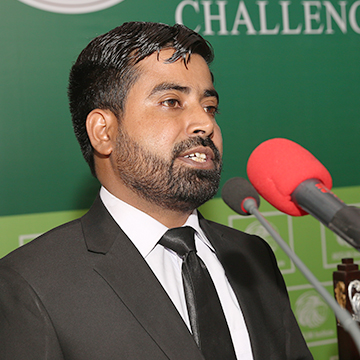
|
|
Mr. Nasir Abbas Shah
Scholar on Law
Status of Junagadh State in the Domestic Law of Pakistan
|
| |
|
The council of Junagadh State and its sovereign used their rights to join Pakistan and it was officially announced in the gazette of Junagadh known as Dastur-ul-Amal Sarkar Junagadh. Secondly, the signature of Quaid-e-Azam as the Governor-General of Pakistan on the Instrument of Accession granted the legal status to the State of Junagadh as part of Pakistan. Moreover, the minister for states and frontier regions of Pakistan presented the Instrument of Accession to the Constituent Assembly of Pakistan on 11th February 1949. Additionally, premier Liaqat Ali khan said on the occupation of Junagadh by India that Junagadh is Pakistani territory, nobody, except the Pakistani government is authorized to invite anybody to Junagadh. Moreover, Junagadh got a graphic presentation on the postage stamps of Pakistan. The government of Pakistan issued a new political map in 2020 that showed Junagadh as a part of Pakistan. The presidential ordinance number 15 of 1972 which is about the merger of states is in direct contradiction with the Instrument of Accession of Junagadh, the government of Pakistan must reconsider this ordinance.
|
|
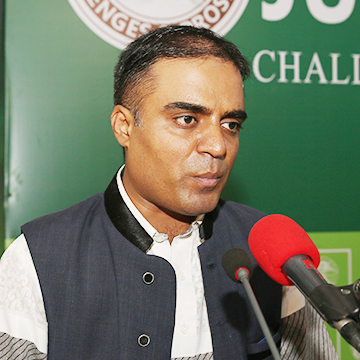
|
|
Dr. Muhammad Asim
Assistant Professor, Political Science, Govt. Associate College, Rawalpindi
Discrepancies between Indian Standpoints over Accession of Junagadh within the Context of Indian Independence Act 1947
|
| |
|
List of Indian varying standpoints over the accession of Junagadh during different events happening between August 15, 1947, to November 09, 1947 show vast level of discrepancies in such a way that duality of Indian leadership over this issue outshines. At one side, India supported self-proclaimed provisional government under the headship of Shamaldas Gandhi against the announcement vis-a-vis the accession of Junagadh State with Pakistan, and claimed Hindu majority population of the state and the Two-Nation Theory as the fundamental reasons of this occupation. However, on the other side, it is controlling numerous Muslim populated areas (currently within or part of Uttar Pradesh, West Bengal, Bihar, Maharashtra, Assam, Kerala, Karnataka, Rajasthan, Gujarat, and the Jammu and Kashmir) either by Redcliff-Nehru injustice or by direct occupation. Likewise, India claims that the Hindu population of Junagadh was against the accession of the state to Pakistan and it had been gathered in Bombay for liberating Junagadh from Nawab’s regime. Whereas there is no proof of Hindu uprising against Nawab of Junagadh.
|
|
|
|
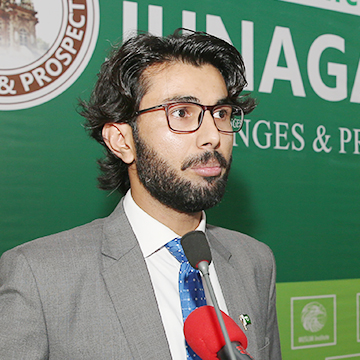
|
|
Mr. Asif Tanveer Awan
LLM, International Law, Research Associate, MUSLIM Institute
Issue of Junagadh State in Perspective of International Law
|
| |
|
India committed acts of aggression against Junagadh when its army forcibly took over the physical possession of the Pakistani soil i.e., Junagadh State. By this act of aggression, India violated Article 2(4) of the charter of the United Nations which ensures the protection of the territorial sovereignty of every state. Forced occupation is illegal and unlawful under Article 42 of the Hague Regulation 1907 and Articles 27 to 34, 47 to 48 of the Fourth Geneva Convention. Keeping in view all these illegalities, Foreign Minister of Pakistan highlighted this issue in United Nations on January 15, 1948. However, this case was treated under Chapter 6 of the United Nations Charter. United Nations Security Council Resolution 39 of 20th January 1948, Resolution 47 of 20th April 1948, and Resolution 51 of June 1948 are related to the case of Junagadh. According to the Vienna Convention on the Law of Treaties 1969, the Instrument of Accession of Junagadh is a valid treaty that is still intact and has binding force. The State of Pakistan also respects this treaty as Pakistan is bound under the international law of Pacta Sunt Servanda which means Pact should be respected by the state parties.
|
|
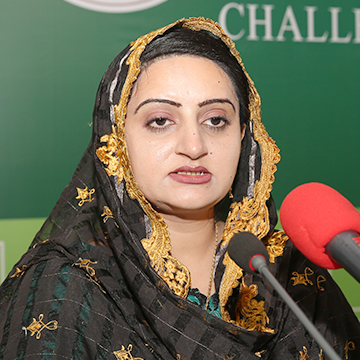
|
|
Dr. Samza Fatima
Assistant Professor of Law, Gillani Law College, Bahauddin Zakariya University, Multan
Accession of Junagadh State with Pakistan: Reinvigorating the Issue that was Thrown under the Mud
|
| |
|
Junagadh was a princely state in pre-partitioned India, and at the time of partition, over 550 kingdoms were given the option of joining either Pakistan or India. The Nawab of Junagadh decided to join Pakistan. In the meantime, India seized the kingdom since it was surrounded by India and had only access to Pakistan through the Arabian Sea. Despite the fact that Pakistan's claim over Junagadh State is quite solid and legitimate; the authorities have failed to keep this matter alive. According to international law, the original agreement of the ‘Instrument of Accession' between the Nawab of Junagarh and Quaid-e-Azam is an important legal instrument and an international treaty. According to Article 42 of the 1907 Hague Regulations Governing the Laws and Customs of War on Land, "territory is declared seized when it is truly positioned under the authority of the opposing army". According to Article 26 of the Vienna Convention on the Law of Treaties, India's possession of Junagadh is unlawful, and it should be restored to Pakistan. Occupations are controlled by both International Humanitarian Law (IHL) and the International Human Rights Law (IHRL), which India must follow due to its ratification of the key IHRL and IHL agreements.
|
|
|
|
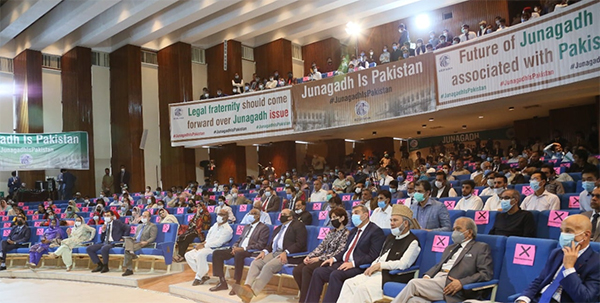
|
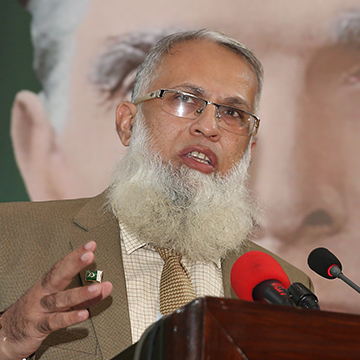
|
|
Dr. Imran Naseem
Assistant Professor, COMSATS University Islamabad, Abbottabad Campus
Issue of Junagadh: Dead or Alive
|
| |
|
Indian literature claiming that the Junagadh’s court invited the Government of India to take over the State’s administration falls short of providing the evidence of such invitation. However, India’s two different assertions contradict each other. On one hand, India claims that Dewan influenced the Nawab for accession with Pakistan and on the other hand it claims an invitation to India from the same Dewan to intervene and take over the administration. How can both be true at the same time? Although the Indian intervention and forceful annexation of Junagadh are illegal in literal terms and Pakistan’s claim over the territory is de jure, India enjoys de facto control over the areas and it seems almost a settled area of India. India miserably fails to justify its self-contradictory stances on Hyderabad and Junagadh on one hand, and on Kashmir on the other hand. The foreign office needs to gear up its efforts internationally as it has been decades since it actively voiced for Junagadh. The Nawab, in accordance with the prevailing circumstances of that time, had all the powers to freely decide the State’s accession to either of the countries. UNSC Resolutions are still intact but contextually forsaken practically.
|
|
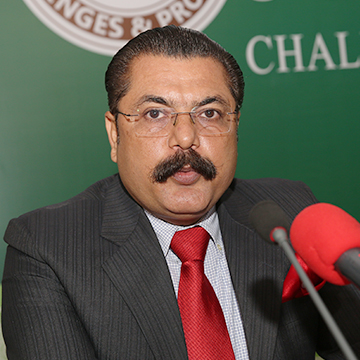
|
|
Advocate Feroz M. Siddiqui
Chairman of Junagadh State Lawyers Council, Visiting Faculty Member, Shaheed Zulfiqar Ali Bhutto University of Law, Karachi
Issue of the Princely State of Junagadh in Perspective of International Law
|
| |
|
The Nawab of Junagadh, H.H Mahabat Khanji III, despite having all the power to make the decision regarding the accession placed this matter before the State Council. The council also took a unanimous decision in favour of Pakistan. Many Hindus were also members of the State Council along with the Muslim members who represented their community members’ wishes respectively. According to sub-clause (a) & (b) of Section 2 of the Indian Independence Act 1947, no area shall be included and/or excluded from any Dominion without the consent of that Dominion. Did the act of signing the Instrument of Accession by both Pakistan and Junagadh make it an international treaty? It indeed did, and after affixation of the signature of the Governor-General of Pakistan on the instrument, Junagadh became part of the Pakistani State. After the Indian illegal occupation of Junagadh, the matter took the course to the United Nations, but at the United Nations Security Council (UNSC), India's argument revolved around the wishes of the people which they alleged that the Nawab of Junagadh ignored. The subsequent and so-called Plebiscite conducted by India is considered a sham by the international community and also by the unbiased Indians.
|
|
|
|
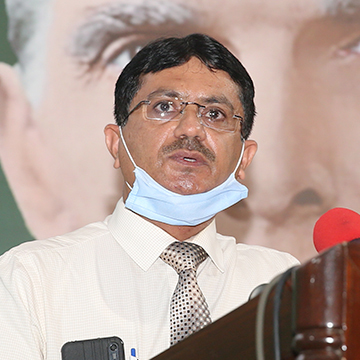
|
|
Dr. Altaf Ullah
Senior Research Fellow, National Institute of Historical and Cultural Research, Quaid-i-Azam University, Islamabad
Junagadh State: An Examination of the Two Divergent Approaches
|
| |
|
Pakistan’s approach is that Nawab Mahabat Khanji, the then ruler of Junagadh signed the instrument of accession with Pakistan. Nawab decided to accede to Pakistan in September 1947, by claiming that his state was linked to Pakistan by sea. The ruler of Junagadh decided to join Pakistan but India forcibly occupied it claiming that it was a violation of the principles of partition but the same right was denied by India in the case of Kashmir. The second is the Indian approach that Junagadh is bounded by three sides with states that acceded to India. Nehru wrote to Liaqat Ali Khan that India cannot be expected to acquiesce to such geographical arrangement. Geographical contiguity with India and the majority Hindu population are two causes of accession of Junagadh to India. Pakistan has documents of the accession while India has the lack of documents to prove its claim. To conclude, both in Kashmir and Junagadh, India is practicing unconstitutional actions and defer decisions that go against her. However, Indian RSS and Hindutva policies should be held accountable. Otherwise, Indian aggression will possibly lead the world towards destruction.
|
|
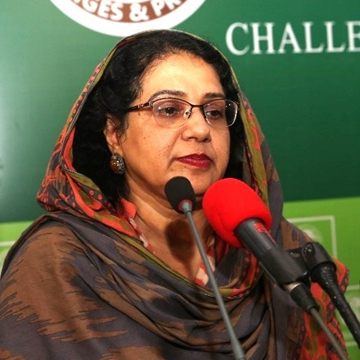
|
|
Prof. Dr. Amna Mahmood
Dean, Faculty of Social Sciences, International Islamic University, Islamabad
Guest Remarks
|
| |
I totally agree with all the speakers elaborating on the Pakistani stance and our claim on Junagadh. We have a legal Instrument of Accession. I will discuss some facts that were revealed by the worthy speakers and those which have not been discussed yet. When I was studying the proceedings of the UN General Assembly on the issue of Junagadh, I also went through the statement that was given by the delegate of Norway. He explicitly discussed that how India can go for one option in the case of Kashmir and another in the case of Junagadh. There should be some parity and uniformity in its policies and a legal stand that made it clear.
If we study the accession of Kashmir and Junagadh in parallel, this could have simply resolved the problem. India didn’t comply with the right of self-determination of the majority population in Kashmir and created a huge humanitarian crisis in Kashmir. Whereas in the case of Junagadh, India has totally opposite stance.
|
|
|
|
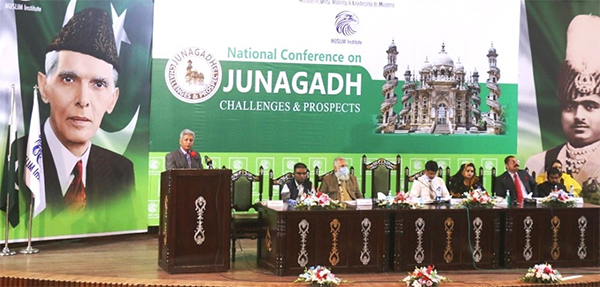
|
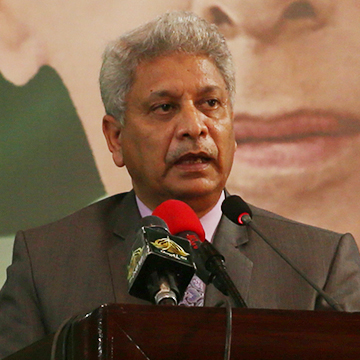
|
|
Prof. Dr. Nazir Hussain
Dean Social Sciences and Humanities, University of Wah
Remarks by the Chair
|
| |
|
MUSLIM Institute since its establishment in 2012, has highlighted all the issues that have been faced by Muslim countries like Kashmir, Palestine, Sudan, Afghanistan, and Junagadh is also included since 2015. Today, different presentations have been given which cover all possible aspects of Junagadh state. It includes national law, international law, Indian act 1935, and Indian independence act 1947, etc.
|
|
|
Furthermore, two fundamental points, firstly political history is not a law but a real politics. It is for the first time when students and experts from all over Pakistan came for debate to initiate the issue of Junagadh. In the case of Kashmir, the situation is different but in the case of Junagadh, we have legal proof and the right to claim. Many universities are involved in this process of convening this national conference, and in Islamabad, 4 to 5 different universities are also a part of this conference. However, this conference has initiated academic research on the legality and political issues on Junagadh state. In such conferences, there is a need to put a more robust emphasis on Kashmir Issue in parallel with the Junagadh Issue.
|
|
|
|
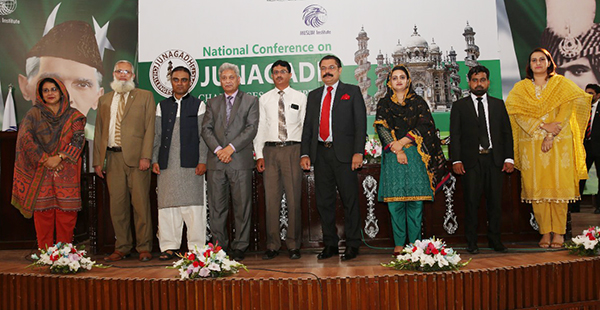
|
|
© 2021. All rights reserved.
|
|
|
|
|
|
|
| | | |